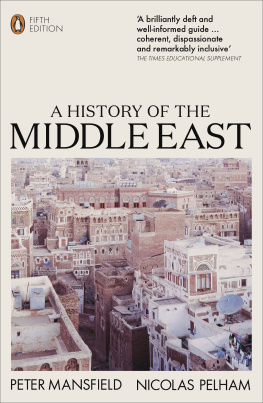Copyright 2019 by Luis Fleischman
New Academia Publishing, 2021
All rights reserved. No part of this book may be reproduced or transmitted in any form or by any means, electronic or mechanical, including photocopying, recording, or by any information storage and retrieval system.
Library of Congress Control Number: 2020922086
ISBN 978-1-7333980-8-4 paperback (alk. paper)
 | New Academia Publishing, 4401-A Connecticut Ave. NW, #236, Washington, DC 20008 info@newacademia.com - www.newacademia.com |
For Laura, Maia, and Julian
Preface
The idea to write this book emerged from my repeated observations of the Israeli- Palestinian dynamic after the collapse of the Camp David Summit in the summer of 2000. One of the facts that most surprised me was that Israel continued to be the target of accusations despite the concessions it made both at the Summit and afterward. For example, the French government of President Jacques Chirac blamed the collapse of the talks on then-Likud leader Ariel Sharon, claiming that his visit to the Temple Mount in late September 2000 caused the violence that ultimately led the European Commission to adopt a resolution condemning Israels use of force against the Palestinians. At a non-governmental organization (NGO) Forum that took place in conjunction with the 2001 World Conference against Racism in Durban, South Africa, a resolution was adopted declaring Israel a racist and apartheid state. This resolution was also supported by large numbers of NGOs, including the prestigious Human Rights Watch.
The consequences of this adverse view of Israel, extended to the Boycott, Divestment and Sanctions (BDS) movement, a nihilistic, anti-Zionist campaign aimed at delegitimizing the very existence of the State of Israel. Followers of BDS consider the State of Israel illegitimate and support the one-state solution, which aims to recover an Arab majority in Israel and erase the identity of the country as a Jewish state.
On the other hand, criticism of the Palestinians came mostly from Israel or from supporters of Israel in the world. The argument focused on the Palestinian narrative, on their demands such as the right of return, and on their responsibility for the failure of multiple negotiations attempts.
It seemed that this process of blaming and counter-blaming may be missing the point, hence obscuring other possible resolutions to this impasse. The purpose of this book is to explore alternatives by reevaluating the Oslo peace process as well as assessing options to respond to this ongoing crisis.
As somebody who worked in the organized American Jewish community in the field of public diplomacy, and who is also a political sociologist by training, I tried to make sense of the situation. If Israel offered peace and concrete concessions three times only to be rejected or ignored by the Palestinian side, including by moderates such as Mahmoud Abbas, there must be an explanation that requires analysis. If multiple diplomatic efforts have failed, there must be a reason why they failed. If there is an explanation for this failure, perhaps we can begin to think with a fresh mind about new solutions rather than resort to blame or insist on doing the same things all over again, only to obtain the same failed results.
I viewed the Oslo peace process between the Palestinian Liberation Organization (PLO) and Israel as a sign of hope. I was devastated by the murder of Israeli Prime Minister Yitzhak Rabin, the man who signed the Oslo agreements with PLO leader Yasser Arafat. I even scheduled a trip to Israel in May 1996 to make use of my right as an Israeli citizen to vote for the Labor candidate for prime minister, Shimon Peres, a Rabin ally who ended up losing by a small margin to Benjamin Netanyahu. I was deeply worried about the continuity of the peace process as I observed Netanyahus lack of enthusiasm for the Oslo agreements and Hamas sabotage of the peace process. Then, I celebrated the return of the Israeli Labor Party to power in 1999 under the leadership of Ehud Barak, only to be disappointed by the failure of the Camp David Summit, the outbreak of the Second Intifada and the collapse of subsequent peace negotiations. More than anything, I was shocked by the level of profound hostility displayed by Palestinian armed groups and some sectors of the Palestinian population toward Israel. It was hard to forget scenes such as the lynching in Ramallah of two Israeli soldiers at the hands of a Palestinian mob assisted by Palestinian police, including the individual who proudly waived his bloodstained hands after the brutal murder.
It was with the outbreak of the Second Intifada and the intensification of anti-Zionist rhetoric among the Palestinians when I began to suspect that Palestinian animosity towards Israel was so ingrained that it would be very difficult to reverse. After Israels withdrawal from Gaza, Hamass parliamentary victory, and its violent snatching of the Gaza Strip from Fatah, I began to view the conflict with more pessimism. I began to realize that the Palestinians are facing a problem that diplomacy and peace negotiations would not be able to solve. There was no Palestinian power capable of enforcing order.
During the second Netanyahu government that began in 2009, the prime minister began to look at the possibility of reaching a separate peace with the Arab world. He began to approach Arab leaders based on common enmity towards Iran.
This led me to explore whether Arab countries have changed some of their attitudes towards Israel in the wake of such cooperation and to what extent this can contribute to peace.
I have been very skeptical about the Arab states and their leaders past approaches to peace and normalization with Israel. A peace agreement between Egypt and Israel was signed in 1979. However, there has been also a parallel Egyptian resentment and coldness towards Israel. Likewise, early in the Oslo peace process, Arab countries, under the guidance of Egypt, withdrew from the multilateral talks aimed at guaranteeing the Israeli-Palestinian peace on a regional basis. At the end of the Camp David Summit, the same Arab countries refused to respond to US President Bill Clinton when he called on them to intervene to save the Oslo peace process.
However, lately we are seeing some cooperation between Israel and some Arab Sunni states based on common interests, mainly a common enmity with Iran and terrorist groups. The recent peace and normalization agreement between Israel and two Arab countries, the United Arab Emirates and Bahrain, proves that progress with the Arab world is possible. Despite this, I wondered whether cooperation on this basis between Israel and some Sunni Arab states constituted a sufficient condition to bring peace between Israel and the Arab world or between Israel and the Palestinians.













